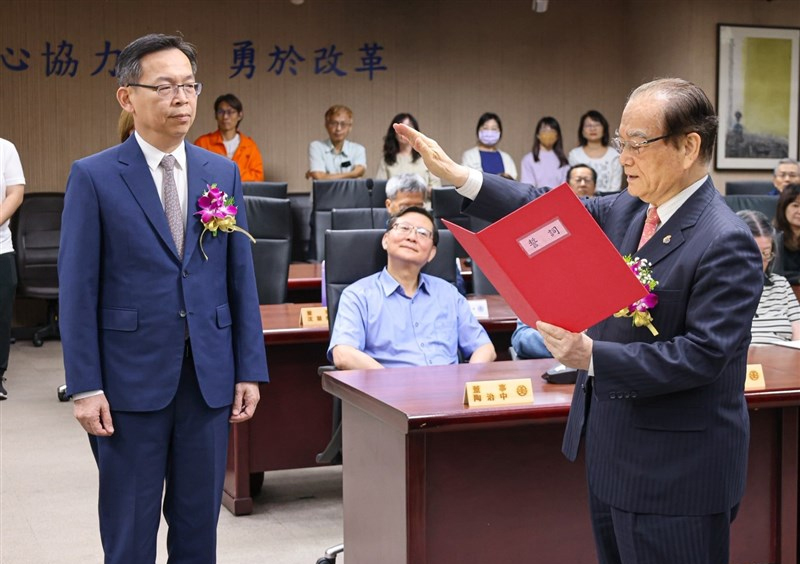🚄 James Jeng Appointed Chairman of Taiwan Railway Corp to Lead Post-Reform Recovery
In a pivotal leadership change, James Jeng (鄭光遠), former chairman of the Taiwan High Speed Rail Corp. (THSRC) and a senior Evergreen Group executive, has officially taken the helm of Taiwan Railway Corp. (TRC). The appointment, ratified during a special board meeting on Monday, marks a significant move as the newly corporatized TRC faces intense scrutiny over its ballooning deficits, aging infrastructure, and long-standing operational inefficiencies.
🛤️ From Government Bureau to State-Owned Corporation
The TRC, formerly known as the Taiwan Railways Administration (TRA), underwent a structural overhaul in January 2024 following years of criticism stemming from two fatal train crashes (2018 and 2021) and chronic budget deficits. The Taiwan Railway Corporation Act, passed in May 2022, transformed the TRA into a corporatized but state-owned entity—a bold attempt to modernize Taiwan’s conventional rail network.
While the organizational shift aimed to introduce greater accountability, flexibility, and efficiency, it has yet to resolve deep-rooted financial challenges. In 2024 alone, the TRC posted NT$12 billion (approx. US$406 million) in losses, despite logging its highest-ever ridership.
💸 First Fare Hike Since 1995
To counter mounting operational costs, the government has approved a long-overdue average fare increase of 26.8%, set to go into effect on June 23, 2025. This marks the first fare adjustment in over three decades, an indication of the financial strain the network faces.
While the fare hike is expected to generate much-needed revenue, critics argue that unless accompanied by structural reforms, the increased fares may not be sufficient to stabilize TRC’s balance sheets.
👤 Why James Jeng?
The appointment of James Jeng is seen as a strategic move. His career spans key transportation sectors, from air to rail. During his tenure at THSRC, Jeng helped steady the high-speed rail operator, which had also experienced early financial turbulence. He previously held top positions at EVA Airways and Evergreen Group, providing him with a broad perspective on operational logistics, safety, and customer service.
Jeng has already laid out his immediate priorities:
- Safety First: Rebuilding public trust through safety upgrades and stricter protocols.
- On-Time Performance: Leveraging operational reforms to increase punctuality.
- Employee Welfare: Recognizing that happy employees drive better customer experiences, he has pledged to improve work conditions and address long-standing labor issues.
“Only happy employees will be able to satisfy the company’s customers,” Jeng stated during a visit to the TRC workers union.
👥 Labor Tensions Still Simmer
Despite his proactive engagement, Jeng inherits a fractured relationship with the railway’s workers union. The union opposed the corporatization, fearing mass layoffs, reduced benefits, and deteriorating job security. On Monday, the union reiterated that employee turnover remains high, and inflexible shift systems are worsening morale.
It has called for a revamp of the wage structure and subsidy mechanisms to retain skilled workers, especially as the company shifts to a performance-driven business model.
📉 What’s at Stake?
The TRC’s transformation is about more than just balance sheets—it is a litmus test for Taiwan’s broader push to modernize state-owned enterprises (SOEs). Many SOEs across Asia face similar challenges: aging infrastructure, political interference, and the struggle to balance public service with fiscal discipline.
If Jeng succeeds, it could pave the way for similar reforms in other sectors. If he fails, it may reaffirm critics’ belief that such organizations are fundamentally resistant to meaningful change.
✍️ Conclusion
James Jeng’s leadership at TRC will be a defining chapter in Taiwan’s ongoing transportation reforms. With financial strain, a pending fare hike, and mounting pressure from both commuters and staff, Jeng faces one of the most complex leadership challenges in Taiwan’s public sector today. His success—or failure—could significantly influence how Taiwan manages its other legacy SOEs in the years to come.
📌 FAQs
Why was James Jeng appointed as the chairman of TRC?
James Jeng was chosen for his broad leadership experience across aviation, maritime, and railway sectors, particularly his successful tenure at Taiwan High Speed Rail Corp, which faced similar early financial issues.
What are the biggest challenges facing TRC?
TRC faces NT$12 billion in losses, high employee turnover, infrastructure modernization needs, labor tensions, and the pressure to maintain affordable services while improving performance.
When is the fare hike and how much will it be?
An average fare hike of 26.8% will take effect on June 23, 2025. It’s the first fare increase since 1995.
Is the TRC now fully privatized?
No, TRC is now a state-owned corporation, not a private company. While it’s run more like a business, it’s still overseen by the Ministry of Transportation and Communications.
How is this different from Taiwan High Speed Rail Corp.?
THSRC is a private company with government shareholding, operating Taiwan’s high-speed rail system. TRC operates conventional rail and remains entirely state-owned under a corporate model.


